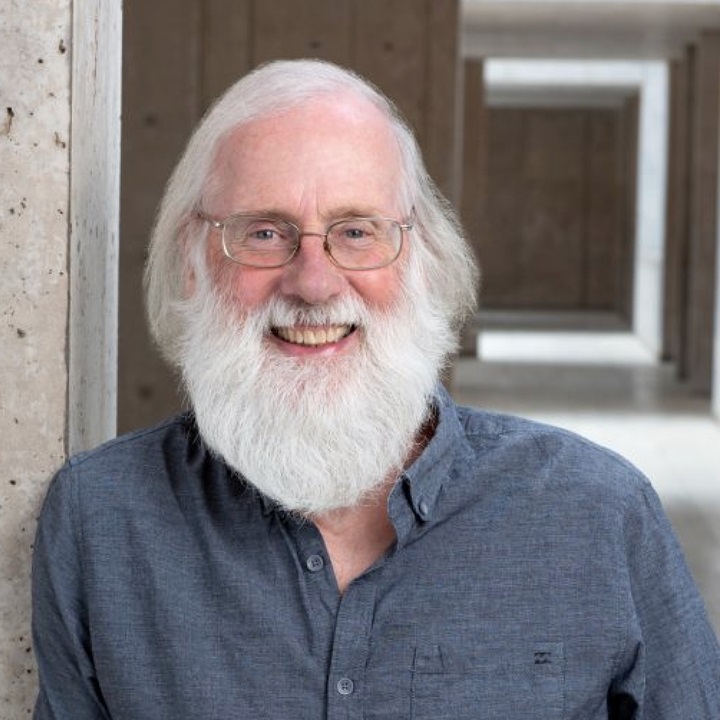SPEAKERS

Tony Hunter
AFFILIATION:
Salk Institute, La Jolla, CA, USA
POSITION TITLE:
American Cancer Society Professor, Molecular and Cell Biology
Renato Dulbecco Chair
EDUCATION/TRAINING:
University of Cambridge, Cambridge, England B.A. 1965 Natural Sciences
University of Cambridge, Cambridge, England M.A. 1966 Natural Sciences
University of Cambridge, Cambridge, England Ph.D. 1966 Biochemistry
Salk Institute for Biological Studies, La Jolla, CA Postdoc 1971-73 Tumor Biology
HONORS:
1987 Fellow of the Royal Society of London
1992 ACS Research Professorship
1992 Fellow, American Academy of Arts and Sciences
1994 General Motors Cancer Research Foundation Mott Prize
1994 Gairdner Foundation International Award
1994 Biochemical Society Hopkins Medal
1998 Member, National Academy of Sciences, USA
1999 Feodor Lynen Medal
2000 J. Allyn Taylor International Prize in Medicine
2001 Keio Medical Science Prize
2003 Sergio Lombroso Award
2003 City of Medicine Award
2004 American Cancer Society Medal of Honor
2004 Kirk A. Landon-AACR Prize
2004 Prince of Asturias Award for Scientific and Technical Research
2004 Louisa Gross Horwitz Prize
2004 Member, National Academy of Medicine
2005 Wolf Prize in Medicine
2005 Daniel Nathans Memorial Award
2006 Member, American Philosophical Society
2006 Pasarow Award in Cancer Research
2007 Clifford Prize for Cancer Research
2011 Signal Transduction Society Honorary Medal
2013 Einstein Professor of the Chinese Academy of Sciences
2013 Fellow, AACR Academy
2014 Royal Medal, Royal Society of London
2014 BBVA Foundation Frontiers of Knowledge Award in Biomedicine
2017 Sjöberg Prize in Cancer Research
2018 Pezcoller Foundation-AACR International Award for Cancer Research
2018 Tang Prize for Biopharmaceutical Science
2019 Rell Sunn Queen of Makaha Award
RESEARCH INTERESTS:
Dr. Hunter’s laboratory has a strong track record in investigating signaling pathways initiated by receptor tyrosine kinases, and in the analysis of processes regulated by phosphorylation, having discovered tyrosine phosphorylation as a new principle of protein regulation and subsequent analyzing the pathways that elicit the transformed phenotype of cancer cells, having shown that aberrant tyrosine phosphorylation is a major mechanism of oncogenic transformation. This discovery has subsequently led to the development of a new class of cancer drug directed against oncogenically activated tyrosine kinases, which are widely used for targeted cancer therapy. For many years, we have been studying the role of phosphorylation and ubiquitylation in growth control, the DNA damage response, and cancer, and we have acquired a great deal of experience in the analysis of phosphorylation, ubiquitylation, and sumoylation-based cellular signaling pathways in normal and cancer cells. In particular, we have studied the role of protein kinases and tyrosine/serine/threonine phosphorylation events in the responses of normal cells to stimulatory signals and investigated how cancer cells rewire their phosphorylation networks to proliferate and survive. More recently, the lab has begun to study the role of histidine phosphorylation in cancer, generating monoclonal antibodies selective for the 1-pHIs and 3-pis isoforms, and using them to show that elevated histidine phosphorylation is a driver of hepatocellular carcinoma. For the past few years, the group has been investigating the tumor microenvironment in pancreatic cancer (PDAC), and in particular the contributions of pancreatic stromal cells, known as cancer-associated fibroblasts (CAFs), in PDAC progression. Our goal has been to identify paracrine factors secreted by activated CAFs in the tumor tissue that act on the tumor cells and can be targeted for therapeutic purposes. Through these studies, we have identified the LIF cytokine, secreted by activated CAFs that acts to promote survival and maintain stemness of tumor cells, and thereby serves as a new driver of PDAC progression. We have shown that therapeutic targeting of LIF by a neutralizing anti-LIF monoclonal antibody prolongs survival and increases sensitivity to chemotherapy in a mouse PDAC model. Circulating LIF also has the potential to serve as a PDAC biomarker, being detectable in PDAC patients with levels correlating with disease stage.
PUBLICATIONS:
List of published work in Google Scholar:
https://scholar.google.com/citations?hl=en&user=fcxriTYAAAAJ